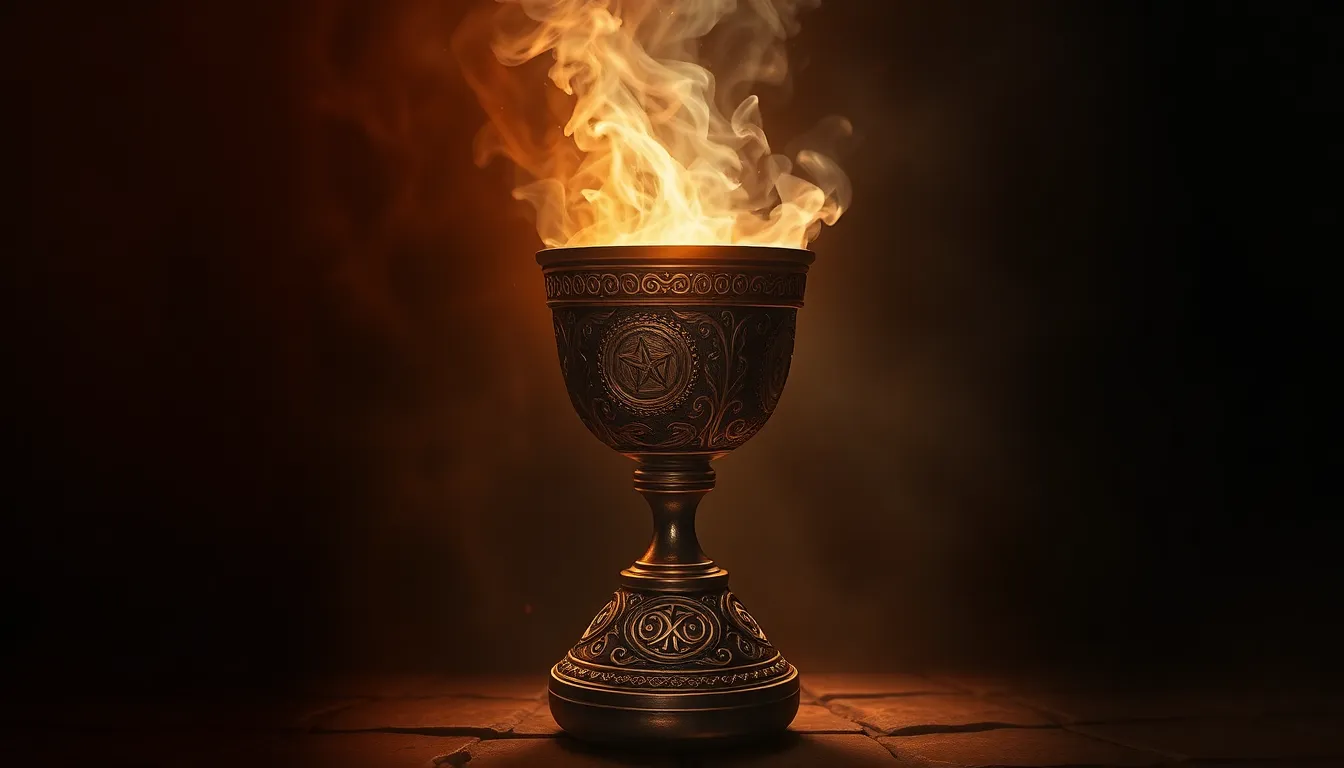The Myth of the Great Creator: Morality in Imagination
I. Introduction
The Great Creator myth, a pervasive narrative throughout human history, presents a figure or entity that embodies the genesis of existence and moral order. This archetype has influenced various cultures, shaping their understanding of right and wrong. In this article, we will delve into the intricate relationship between imagination and morality, exploring how these concepts intertwine to inform human behavior and societal norms.
The purpose of this article is to examine the historical context of the Great Creator myth, the role of imagination in moral development, critiques of this myth, and alternative moral frameworks that illuminate the potential for an inclusive understanding of ethics.
II. Historical Context of the Great Creator Myth
The concept of the Great Creator can be traced back to ancient civilizations, where gods and deities were often credited with the creation of the universe and the establishment of moral codes. This myth has evolved through various religious and philosophical lenses, adapting to the cultural contexts of different societies.
- Origins: Many cultures, from the Mesopotamians to the Greeks, envisioned a creator figure as a source of life and moral law.
- Evolution: Over time, philosophies such as existentialism and humanism began to challenge the necessity of a singular creator, emphasizing individual moral reasoning.
- Impact: The Great Creator has significantly influenced societal norms, often serving as a foundation for legal systems and ethical codes.
III. The Role of Imagination in Moral Development
Imagination, in the context of morality, can be defined as the ability to envision scenarios beyond one’s immediate experiences, allowing for the exploration of ethical dilemmas and the consideration of various perspectives.
Imaginative thinking shapes ethical perspectives in numerous ways:
- It allows individuals to empathize with others by putting themselves in different situations.
- It encourages critical thinking and questioning of established moral norms.
For instance, consider the classic moral dilemma of the trolley problem. This thought experiment invites individuals to weigh the consequences of action versus inaction, prompting deep ethical reflection influenced by one’s imaginative capacity.
IV. Critiques of the Great Creator and Its Moral Implications
Philosophical critiques of the Great Creator myth challenge its validity and moral implications. Key discussions revolve around moral absolutism versus moral relativism.
- Moral Absolutism: This viewpoint posits that certain actions are intrinsically right or wrong, often attributed to divine command.
- Moral Relativism: In contrast, this perspective suggests that moral standards are culturally bound and subjective, undermining the authority of a singular creator.
The danger of attributing moral authority to a singular creator figure lies in the potential for dogmatism, stifling moral diversity and ethical exploration.
V. Imagination as a Tool for Ethical Exploration
Storytelling and art play a crucial role in moral reasoning, allowing individuals to explore ethical questions in nuanced and engaging ways. Literature and fiction, in particular, expand our moral understanding by presenting complex characters and situations that challenge our preconceived notions.
- Through narratives, readers can experience the emotional weight of moral choices.
- Art can evoke empathy, compelling individuals to reconsider their moral stance.
Imagination fosters empathy and compassion, encouraging individuals to connect with others’ experiences and perspectives, ultimately enriching moral discourse.
VI. Psychological Perspectives on Morality and Imagination
Psychological theories underscore the connection between imagination and morality. Research indicates that imaginative engagement can enhance moral development and decision-making.
- Theories: Cognitive development theories, such as those proposed by Piaget and Kohlberg, highlight stages of moral reasoning influenced by imaginative capacity.
- Studies: Research has shown that individuals who engage in creative thinking are often more adept at navigating complex moral dilemmas.
These studies suggest that imagination is not merely a frivolous exercise but a vital component of ethical behavior and moral reasoning.
VII. The Great Creator Myth in Contemporary Society
In contemporary society, interpretations of the Great Creator myth continue to evolve. Modernity has seen a shift in how this concept is perceived, influenced significantly by technology and media.
- Modern Interpretations: Some view the Great Creator as a metaphor for human creativity and innovation, rather than a divine being.
- Influence of Technology: The rise of digital media has transformed moral imagination, presenting new challenges and ethical considerations.
- Secularism: The growing secular movement reshapes moral narratives, encouraging alternative frameworks that prioritize humanistic values.
VIII. Alternative Moral Frameworks
Exploring non-theistic moral philosophies reveals a variety of ethical systems that do not rely on the Great Creator myth. These frameworks often emphasize communal values and human experience.
- Community-based Ethical Systems: Examples include utilitarianism, which focuses on the greatest good for the greatest number, and virtue ethics, which emphasizes character and moral virtues.
- Inclusivity: Such frameworks promote a more inclusive morality, accommodating diverse perspectives and experiences.
IX. The Future of Morality in Imagination
Looking ahead, the evolution of moral thought will likely be shaped by several factors. Education will play a critical role in nurturing moral imagination, helping individuals to think critically and empathetically.
- Predictions: As global challenges, such as climate change and social inequality, become more pressing, ethical constructs may evolve to address these issues.
- Education: Curricula that emphasize moral reasoning and imaginative engagement will be essential in preparing future generations.
X. Conclusion
In summary, the Great Creator myth and the role of imagination in morality are complex and interlinked. Through examining the historical context, critiques, and alternative frameworks, we can appreciate the significance of imagination in moral discourse.
As we navigate an increasingly diverse and interconnected world, it is imperative that we engage with our moral imaginations, fostering empathy and understanding in our ethical considerations. We invite readers to reflect on their own moral frameworks and the imaginative capacities that inform them.




